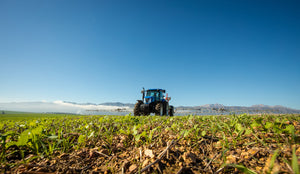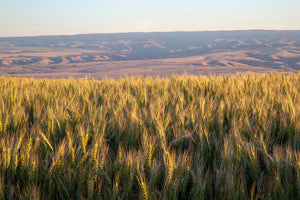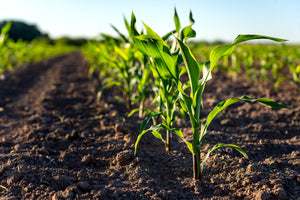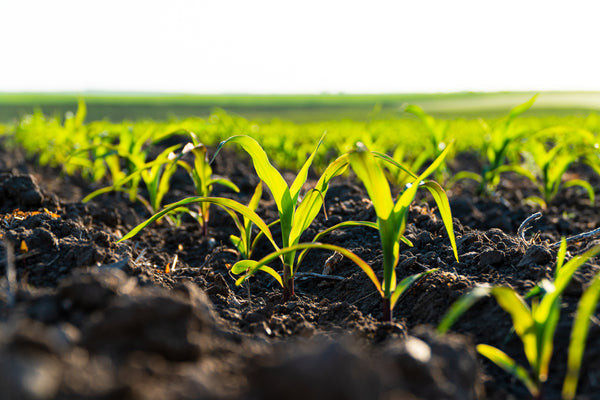
About No-Till & Direct Seed Program
Our Direct Seed Loan Program makes it easy for you to switch to direct seed and no-tillage operations as we offer low-interest loans to producers for major agricultural equipment purchases that:
- Aid in the direct placement of seed and/or fertilizers in one or two passes
- Aid in the removal or management of residue
To be eligible you must farm within the boundaries of one of the following conservation districts in eastern Washington: Adams, Asotin, Benton, Columbia, E. Klickitat, Foster Creek, Franklin, Grant, Lincoln, Okanogan, Pine Creek, Palouse, Palouse-Rock Lake, Pomeroy, S. Douglas, Snohomish (new!) Spokane, Stevens, Walla Walla, and Whitman. There are also participating districts in Idaho which include: Benewah, Idaho County, Kootenai-Shoshone, and Latah.

Conservation Benefits
- Improves soil tilth: a no-till system increases aggregation making it easier for plants to establish roots with minimized compaction.
- Reduces soil erosion: crop residues on the soil surface reduce the erosion caused by water and wind. Depending on the amount of residue present, soil erosion can be reduced by up to 90% compared to an unprotected, intensively tilled field.
- Improves water quality: crop residue helps hold soil along with associated nutrients (particularly phosphorous) and pesticides on the field to reduce runoff into surface water.
- Improves air quality: crop residue left on the surface improves air quality through reduced wind erosion. Air quality is also improved due to fewer emissions from equipment making fewer trips across the field.
- Moisture Savings: direct seeding buildings a protective mulch on the soil surface which reduces the impact of raindrops, buffers the soil from temperature extremes, and reduces soil moisture evaporation. More moisture gets into the soil and more moisture stays in the soil where crops can utilize it for increased productivity.

Economic Benefits
An independent financial analysis was conducted on our Direct Seed Mentoring Program by the University of Idaho. The analysis showed that direct seeding, versus conventional tillage (on a spring grain crop):
- Reduced labor costs by 50%
- Saved 42% on fuel & lubrication costs
- Reduced repairs (parts & labor) by 20%
- Increased capital recovery by 20%
- Had an overall savings of approximately $13.50 per acre.
By using direct seeding there are fewer passes over the field, which results in less fuel needed, less labor required, and less wear and tear placed on the machinery. It truly is the way to work smarter, not harder!
HOW TO GET STARTED
Loan Criteria
- Applicant must farm in one of the designated counties or within the boundaries of one of the conservation districts participating in the program.
- The loan-to-value ratio shall not exceed 75% based on the cost or appraised value of the collateral.
- Applicant must verify a down payment of 25% on the implementation before loan money is distributed.
- Contracts range in length from five to 10 years. The first payment is due one year from the date the funds are dispersed.
- Applicant shall furnish a letter from their primary lender approving additional debt incurred by applicant and a copy of the invoice from the seller of the equipment showing make, model, serial number, purchase price, and any trade-in allowance.
- Spokane Conservation District shall have the first position as lien holder on the UCC file for the implementation.
- Applicant must provide proof of full coverage insurance with the Spokane Conservation District listed as the loss payee on financed equipment.
- Operators receiving loans shall assist the District in assessing the impact of implementation on water quality (erosion rates) for the duration of the loan.
Eligible Equipment
Implements that aid in the direct placement of seed and/or fertilizer in one or two passes:
- No-tillage and direct seed drills
- Fertilizer placement implements
- Sprayers
- Tractors
Implements that aid in the removal or management of residue:
- Heavy harrows
- Mowers/shredders
- Swathers
- Balers and bale handling equipment
- Combines
Ask Us a Question or Request Assistance
SCD is available to explore funding opportunities and financial aid programs that can support your conservation efforts. From grants and loans to cost-sharing programs, we can help you access the necessary resources to make your conservation projects a reality.
Do you have a resource concern? Tell us more here.

No-Till & Direct Seed Program Contact
Ty Meyer
Ag Manager
509-535-7274, ext. 228
Ty-Meyer@SpokaneCD.org


